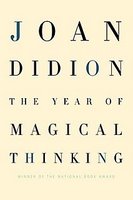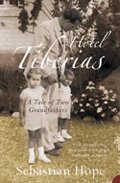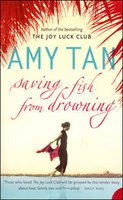

Ever since reading my first boarding school books when I was about ten, a collection named Susana by a German author whose name I forget, I’ve dreamt of attending one of these dreaded institutions.
Works that take place in boarding schools are usually presented, at least partly, as ominous: this is the place where you get sent if your parents are divorcing (Susana), when your father has committed suicide (The Moth Diaries), or where you commit yourself by realizing that a greater sacrifice is required if you hope to escape the dreadful mediocrity and low middle class humdrum of your foreseeable future (Prep, where the rich girls have their own coded acronym for low middle class- LMC). To me, however, boarding school seemed wonderful. These schools are usually located in beautiful bucolic regions, among rolling hills, or snow-capped mountains, where you might have a lake or a river for water sports, or at the very least a whole bunch of trees and plants. I always longed to live close to nature, having grown up in a very old urban neighborhood of Lisbon, and these kids seemed like lucky bastards to me: they sailed, they played tennis, whenever they went nature was around them (if I recall correctly, Susana’s school even had an optional class on horticulture!). My second favorite thing was the academic mood palpable in these old edifices - because whether or not the reality supports it, the image the institution tries to put across is that excellence in education is their absolute priority - because school was where I felt most comfortable at that age. The only down side to attending a boarding school was that they made you share a bedroom – but the wily Susana also taught me that if you raise enough hell, they’ll probably give you a single.
In any case, normal happy boys and girls probably attend such schools, but one thing is for sure: their days are so gloriously filled with classes, sports, clubs and friends, that they never seem inclined to take to the confessional required for a good diary read, which is the normal form for boarding school books. Just like Jack Nicholson’s character in “As Good as it Gets”, explains to Helen Hunt’s, not everyone has a miserable life – “some have great stories, pretty stories that take place at lakes with boats and friends and noodle salad. Just no one in this car. But, a lot of people, that's their story. Good times, noodle salad”. The same can be said for adolescence: only it’s never the cheery, sporty, carefree and pretty girl whose daily entries we get to read, but the odd one out, the clumsy, too smart or not smart enough, too brooding for her own damn good. But maybe that is missing the point with such coming of age stories, because the reason they are compelling is first and foremost their setting – a confined space for all the characters to bump into each other. Be it an island, a prison, a monastery or a school, the real or perceived state of imprisonment automatically takes the plot tension a notch up. But the age is equally important. In a boarding school not only do you have dozens of characters forced to live with each other every day of the week, you also have them in, possibly, the most turbulent, confusing and intense stage of their lives.
Boys can be the main characters in such school dramas to be sure, but I have to confess that the quintessential of these works for me, has to be about girls. Whatever might be argued, boys simply cannot “do” intense as good as their female counterparts. Their ability to become obsessed, paranoid, or simply sad can never offer the range and mileage of a teenage girl. And as illustrations to the case in point I give you Todd and Neil, the iconographic schoolboys of 1989’s Dead Poets Society, which in their attempt to play sensitive and deep (Hawke’s Todd is so shy he can barely bring himself to speak, and Leonard’s Neil is so distraught by his father’s interdiction of the dramatic arts that he shoots himself in the head) become utterly feminine. When boys behave like boys, they resemble characters such as Tobias Wolff’s in Old School – their preoccupations and anxieties lie with literature not with intimate relationships. When the narrator is a girl, it doesn’t really matter if the school accepts boys (Ault in Prep does; Brangwyn in The Moth Diaries does not) because the focus is always on the feminine universe and although boys might the object of fantasies, it is, even in this case, the way in which the female student body regards the boy (is he popular? How many other girls have crushes on him? What does your best friend think about him? And the popular girls?) which defines him.
The girls in boarding school drama present an environment of undistilled femininity at its most fresh and stultifying, an environment in which the whole day is passed in breathing distance of dozens of other similarly recent women. The unnamed character in Rachel Klein’s The Moth Diaries, explains why she so often turns to a book by Collete, whose setting is also a boarding school: "She knows what it’s like to be shut up in a place like this, where all your emotions are focused on the girls around you, where you dream of a boyfriend but only feel comfortable with your arm around another girls waist".
Similarly, Lee Fiora, the main character in Curtis Sittenfeld’s Prep, remembers her best friend from Ault: "Years later, I heard a minister at a wedding describe marriage as cutting sorrow in half and doubling joy, and what I thought of was not the guy I was seeing then, nor even of some perfect, imaginary husband I might meet later; I thought immediately of Martha".
The Moth Diaries by Rachel Klein and Prep by Curtis Sittenfeld have a great deal in common, as might be expected from two fictionalized diaries of similar aged girls, both experiencing boarding school life. And even though Klein’s book takes place in 1971, and Prep in the nineties, they both share an out of time atmosphere. In The Moth Diaries the narrator explains, “Nothing existed outside ourselves and school. For us the world of politics, social revolution, the war in Vietnam never happened.” In fact, the only clues as to the period setting of the story, are given quite late in the action, with the purchase of Cat Stevens’s Tea for the Tillerman, and a François Truffaut movie. The feel in Prep is surprisingly similar, maybe because these kids “still listened to music from the sixties and seventies”. The isolation is such an important factor, and yet it’s almost impossible to determine whether it’s self-inflicted or simply endured, maybe even encouraged “I guess e-mail existed when I was at Ault, but I had never heard of it”. It makes sense. If one message comes across clearly from these books is that it is virtually impossible to explain to an outsider what it’s like at boarding school. Kind of like explaining to your dad what it’s like being a teenage girl. Good luck with that e-mail.
In the end, The Brangwyn Echoes and The Ault Quarterly, the newsletters of the respective schools, figure prominently in both work’s final lines. Sittenfeld’s and Klein’s characters might have had a hard time (a bit of an understatement as far as The Moth Diaries main character is concerned) but they can’t stop themselves from looking at the pictures of their old classmates, and although it is not a carefree experience, they seem to feel obligated to keep in check the lives of their colleagues – somehow the photos of balding jocks and strings of pearls in aged faces reassure them that they were somewhere during their teen years and not just absent from their family homes. Both agree that nothing compares to their experiences at these schools and both have a difficult time characterizing their own feelings “my unhappiness was so alert and expectant; really, it was in its energy, not that different from happiness” Lee reflects.
Lee is from the Midwest and her application for a scholarship at Ault, in Massachusetts, comes after the realization that South Bend, Indiana, and her mattress seller dad, homemaker mom and two brothers offer little in the glamour she feels even at 13 her life should have. She applies to Ault much in the way girls her age send their photos to model contests; it’s a nice dream but she doesn’t really believe she’ll be selected. When she is, she feels, recognizing her colleagues from the pictures in the catalog like what “it might be to see a celebrity”. What we get to witness are the four years in which Lee tries, more than get on the Ivy League ticket, to fit in among the more privileged students – well, it’s also a kind of education.
We catch up with the unnamed narrator of The Moth Diaries later – she quickly fills us in on the circumstances of her arrival at Brangwyn, her father’s suicide and her mother’s inability to overcome grief -, she is 16 and tells us she has friends, her integration seems completed. Bu in fact, what we are invited to witness in Rachel Klein’s book is the undoing of a normal teenager’s universe, a veritable gothic spiral of paranoia.
There is a subtle darkness suggested on the first pages that builds to a syrupy thickness that will envelop the reader to the point of suffocation in the end, even though this school is portrayed as very progressive: maybe it was the sixties that made it okay for students to have a cigarette break after dinner.
Klein is upfront with the horror overtones her story is about to take – the girl’s literature elective is, after all, called Beyond Belief: Writers of the Supernatural and The Age of Abstraction, and we even have access to the reading list (even though it was Robert W. Chambers not E. K. Chambers who wrote The King in Yellow). The Moth Diaries plays with the uncertainty we must always feel with a diary, or indeed, any first person narrator: if our only glimpse of this world is through a character’s eyes, how sure can we be of the impressions? Who is to say that our guide is neither a liar or mad? In The Moth Diaries all bets are off. Not even the middle-aged narrator who looks back on the written pages offers any answers: "I have always been intrigued by the journals that girls keep. They are like dollhouses. Once you look inside them, the rest of the world seems very far away, even unbelievable".
In Brangwyn the boarders are literary fiends: Dora can quote Nietzsche (even though that doesn’t exactly win her any popularity points) and our narrator takes up reading Proust as a completely normal hobby for a sixteen-year-old, and then is annoyed when she finds out one of the others has finished A La Recherche du temps perdu, some years before. The story revolves around a new girl, Ernessa Bloch, and the way in which she seemingly attracts girls into her orbit in order to change them. The girl who interest Ernessa the most, is Lucy, the narrator’s best friend, hence her own obsession in tracking the new girl’s movements. Lucy is boring but beautiful, just as best friends are supposed to be and fickle with her affections in a way common among teenagers – is she being manipulated by a smarter girl, or is she growing up, outgrowing our narrator? And is Ernessa simply a girl apt at conquering everyone’s attention or something altogether more dangerous? The Moth Diaries invites us in, but also it also compels the reader to make some judgments of which the most important: Is the girl writer sane or psychotic? Can be answered either way. In the end you end up questioning your own beliefs, about locked up teenagers, more than in the supernatural, which seems an accomplishment for a gothic story.
Klein controls the rhythm, the ebb and flow, of the daily entries, expertly. She paints a believable picture because she doesn’t forget nuances: not all the characters need to appear with the same strength, not everything is equally important, but it still needs to be there; Klein controls the intensity of her paintbrushes, in words, plot and characters so that nothing feels overdone, or underestimated. The Moth Diaries is hypnotic and re-readable something of a rare combination.
Prep is, on the whole, a less cohesive book. It starts out by suggesting a series of paths that are never fully explored, and the chapters, specially the first ones, have the tone of short stories, each with its moral lesson at the end. The way Sittenfeld keeps intruding as a older Lee to give us little jumps ahead in the narrative and also to seemingly reflect or illuminate certain episodes, is a less than elegant device, it draws attention from the believable Lee to a less likeable nosey parker, who keeps tugging the reader away from the nice rhythm of the story wanting to explain things, and instead being vaguely irritating, as when in chapter seven, certain facts which only happen in graduation (chapter eight) are disclosed, leaving the reader in the end with the feeling of having been short-changed in the need for a real conclusion. There are also some loose ends which add to this feeling: Gates Medkowski, a senior which appears only in the first two chapters, apparently to provide a device for Lee to doubt her own sexual orientation, is then quickly discarded (as are Lee’s doubts), as if Sittenfeld were cautious of using a more important character to play out these feelings, such as room-mate Martha. The same goes for Little Washington and Conchita, who make similarly intense appearances just to quickly fade from the story, as if the author was obeying some strange novelistic rule about ethnic characters. It is almost as if Little, Conchita, Dede (the Jewish character “the kind of Jew you couldn’t hide”), Rufina, Maria and Darden, “the cool black guy”, are offered in part as an excuse for Lee’s choices – her best friend (preferred over Conchita in an episode which for teenage girls can be described as nothing short of treason) is a white, rich, New England girl, Martha, and her crush the blond basketball team star, Cross Sugarman. Not much by way of diversity. The bigger problem is that most characters don’t seem to have an inner life – like puppets they move only when Lee looks at them – with the exception of Sin-Jun, who comes slowly into her own throughout the book, and Cross, alas, only in the last pages. The names of characters are a dime a dozen and most of them are wonderful: Aspeth, Gates, Little, Horton, Hunter and my absolute favorite: “Maisie Vilayphonh, a half-Finnish, half-Laotian junior whose parents were rumored to be spies”, who makes an appearance, sadly, only in name, on the list of students expelled from Ault, who by the way, seem each and everyone of them more interesting than the insipid Martha Porter, or even Lee herself.
Despite this fact Prep is an accomplished novel in some ways – it creates a believable and fascinating scenario, and the reader does actually feel as if taking a peep at a privileged universe most of us don’t get to experience, but still feel curious about. Lee Fiora is a believable character, and though she may not be likeable, this stems at least partly from the fact that she reminds us of times we were also less than kind to the fat or unpopular girl who wanted to be our friend, to the younger boy who had a crush on us, to our confused parents. She makes us uncomfortable because of that one time we were jealous of a best friend’s success or made our mother cry and that is an achievement. Rachel Klein puts it best in her narrator’s final words “That girl was self-absorbed, but she was also excruciatingly alive”.













